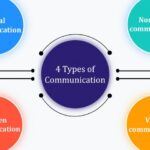Making sure your coworkers, superiors, and others can comprehend what you’re saying is crucial. To become an effective communicator, consider the following:
1. Know your message and audience
Whether you’re communicating verbally or in writing, it’s important to keep your intended audience and message in mind while you craft your message. To guarantee your message is effective, you should first determine its overarching goal. It’s possible that your message’s goal is to:
- Make people laugh
- Conversational Facilitator
- Provide explanations
Make sure the content you’re presenting is interesting and useful to your target demographic. Make sure you’re using language and terms they’re familiar with. If you’re an IT pro talking to a sales team about new software, for instance, keep your explanations simple.
2. Listen actively
Pay close attention so you can grasp what the other person is saying throughout a conversation. Pay attention to what they are saying rather than formulating a comeback. By hearing what others have to say, you can learn how to respond to them.
ALSO READ: Best Sugar Stocks to Buy In India 2023
If you want to show that you’re listening carefully, try paraphrasing what the other person said and repeating it back to them before you react. For instance, you might ask something like, “You’re asking for two weeks to finish the report, is that correct?” You can avoid confusion and show that you’ve heard the other person by setting up a feedback loop like this.
3. Ask questions
Don’t be afraid to ask questions if something isn’t making sense to you. Having complete information is crucial for making informed decisions and engaging in fruitful conversation. In situations when you won’t be able to ask questions immediately away, like a presentation, jot them down and come back to them.
4. Pay attention to body language
Keep an eye out for nods and interested expressions to gauge their level of interest. When someone crosses their arms or checks their phone, you know they’re not paying attention or don’t get the point. If your listener isn’t paying attention, try asking them questions or taking a short pause. Showing that you’re engaged in the conversation by making eye contact, seeming at ease, and using facial expressions is also highly effective.
5. Be clear and concise
Communicate with others in a way that is easy to understand and to which they can relate by being specific and to the point. Try to be as direct as possible in making your argument, and use as few words as necessary. Remove fluff and go for straightforward language. Cliches and business jargon are unnecessary and can be off-putting to certain listeners. Think about how to use words and phrases that appeal to the biggest possible audience.
6. Pause before responding
If you find yourself at a loss for words, pause for a moment to gather your thoughts. If you need a moment to collect your thoughts before responding, pausing is a good idea. It’s an effective strategy for avoiding miscommunication, especially in heated discussions.

If further background or information is needed to formulate an answer, you may want to take your time. It’s possible to reply “I don’t have that answer right now, but I plan to look into it and get back to you.” People respect your candor and appreciate your diligence in seeking out the facts.




